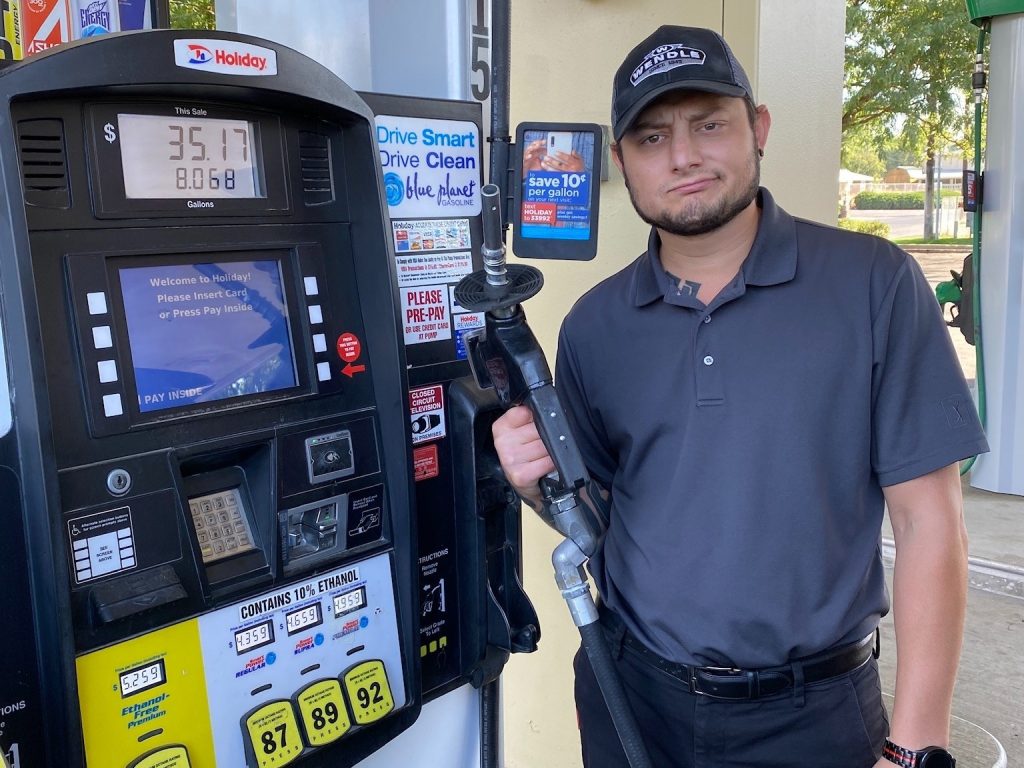
You’ve just bought a new car. Maybe it’s brand new or maybe it’s used, but the question is still the same. Does it matter what kind of gas I use? Is the expensive gasoline better? What’s the best kind of gas to get? Read on for some answers.
Gas Explained
Usually, you can find three octane grades of gas at your local gas station.
- Regular – 87 octane
- Mid-grade – 89-90 octane
- Premium – 91-94 octane
The U.S. Energy Information Administration defines octane levels: “Octane ratings are measures of fuel stability. These ratings are based on the pressure at which a fuel will spontaneously combust (auto-ignite) in a testing engine. The octane number is actually the simple average of two different octane rating methods—motor octane rating (MOR) and research octane rating (RON)—that differ primarily in the specifics of the operating conditions. The higher an octane number, the more stable the fuel.”
How Do I Know What Kind of Gas my Car Needs?
The best place to find out what kind of gasoline your vehicle takes is to read the owner’s manual. Your manufacturer will state if the vehicle requires premium fuel. Some vehicles will have the information near the gas cap.
Can I Use Regular Gas?
As long as the maker of your car does not state that premium gas is required, then you can use the cheaper gas. With the prices of gas these days, that’s a big plus! The more expensive premium fuel will not make your car run any better or any faster if it’s not required.
What If Premium Gas is Recommended?
There is a difference between recommended and required when it comes to gasoline for your ride. Required means that to get the best performance, use premium fuel. Also, not using the required gas could void the warranty. Recommended means that you get to pick and whichever you pick, there won’t be damage caused by your selection. According to Edmunds.com, “In today’s automobiles, advances in engine technology mean that even if the owner’s manual recommends premium gasoline, the car will typically run on regular without issue and won’t damage the engine in any way. The car’s performance might suffer only slightly: It might be a half-second slower from 0 to 60 mph, for instance. But the average driver isn’t likely to notice this drop-off.” But there could be some benefits to the higher octane. Try both, measuring the gas mileage you get and how the car drives. You can then determine which you prefer.
TOP TIER Gasoline
Several major automakers, including Ford, support and recommend higher levels of additives to fuel to reduce carbon deposits, helping to keep the engine’s fuel injectors and intake valves clean. This higher quality gas standard is known as TOP TIER. TOP TIER detergent gasoline provides cleaner fuel to help optimize the performance of auto engines. It will also lower the emissions. Keep in mind that a higher octane rating does not necessarily mean that the fuel is a higher quality. Not every gas station offers TOP TIER gas. You can know if your station offers TOP TIER gas by the trademarked logo. View a list of brands that sell TOP TIER gas here.
Many manufacturers recommend using “top tier” gasoline that contains additives to reduce carbon deposits and keep the fuel injection systems clean so the engines will operate more efficiently.
But there could be some benefits to the higher octane. Try both, measuring the gas mileage you get and how the car drives. You can then determine which you prefer.
So what does it come down to? If your manufacturer does not require premium fuel for your car, then your car doesn’t need it. You can feel comfortable when filling up with a lower octane at the gas station, knowing that you are giving your car the gas it needs while saving a bit at the same time. If you still have concerns, feel free to contact our Ford sales or service staff who can help you make any decisions about which gas to buy.




